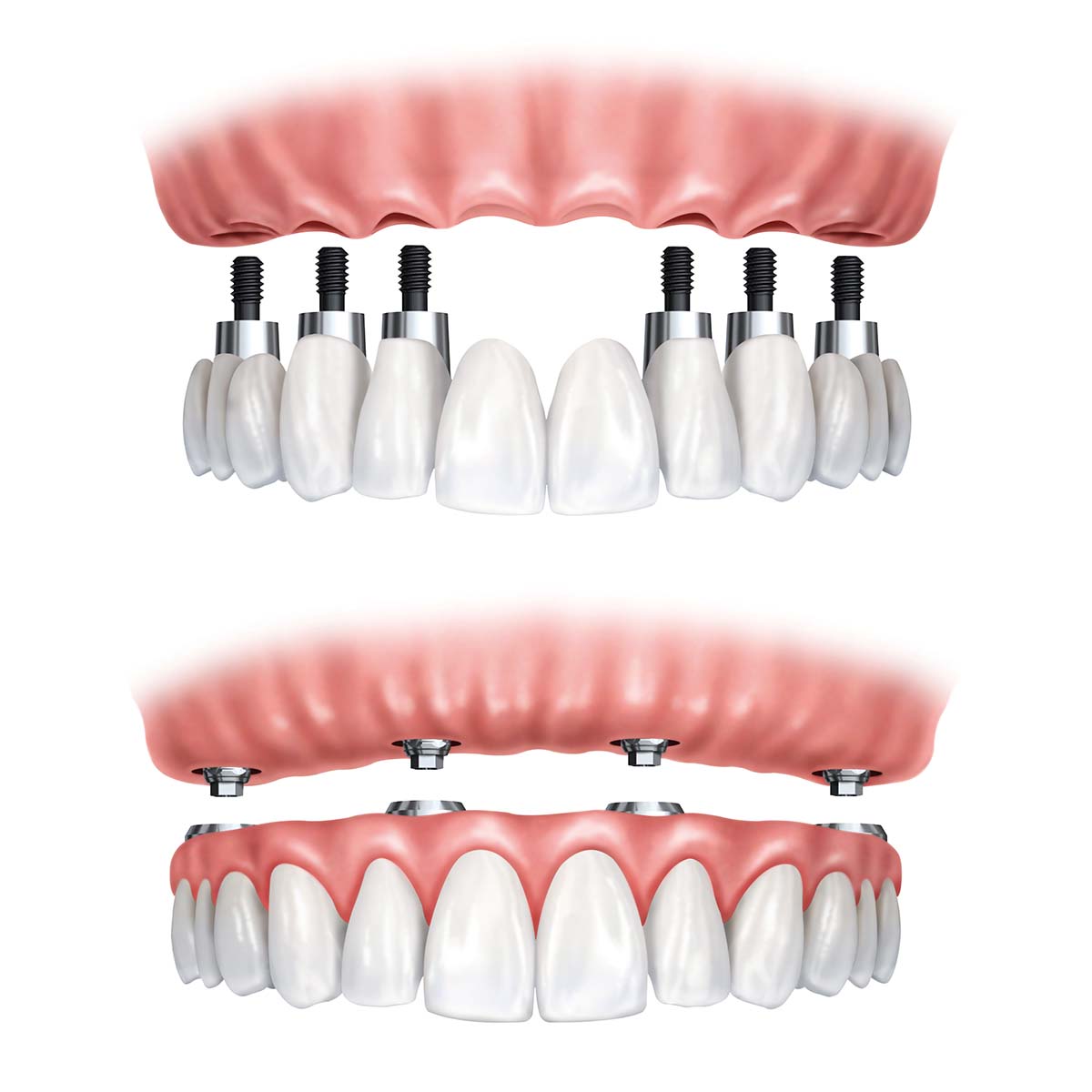Introduction
Imagine a jigsaw puzzle where a piece is missing right in the centre. It seems incomplete, right? That’s how many people feel when they lose a tooth – functionality and aesthetics are compromised. Fortunately, dental implants are there to fill that gap, both in your smile and in your self-confidence.
João, a man in his 50s, knows what it’s like. He lost a tooth a few years ago and since then has tried to hide his smile in photos and chew only on one side. After much delay, he decided to research dental implants. The question that torments him: ‘Am I a good candidate?’ If you identify with João, this article is for you.
What are dental implants?
Dental implants are more than just a replacement for lost teeth. They are small wonders of modern medicine made of titanium – a biocompatible material that the bone ‘adopts’ as part of the body, in a process called osseointegration. This procedure isn’t just aesthetic; it’s functional and can significantly improve your quality of life. According to the European Academy of Implantology, implants have a success rate of over 95 per cent when performed on suitable candidates.
Who is the Ideal Candidate?
1. Healthy Gums and No Active Diseases
Having healthy gums is the basis for a successful implant. Diseases such as periodontitis – an infection that affects the gum tissue – can jeopardise implant stability. According to the British Dental Journal, patients with untreated gingivitis have up to three times the risk of the procedure failing.
How do you know if you’re fit? An assessment with the dentist includes examinations of the gums and, if necessary, a treatment plan to stabilise oral health before the implant.
2. Adequate Bone Quantity and Quality
Implants need a ‘solid base’. If the density or amount of bone in the jawbone is not sufficient, the implant will not be able to attach properly. This can happen in people who have lost teeth a long time ago, as the bone naturally begins to deteriorate when it is not used.
Boas notícias: soluções como enxertos ósseos ou levantamentos do seio maxilar podem ajudar a restaurar o volume ósseo. Um estudo publicado no International Journal of Oral Science revelou que, após o enxerto, a taxa de sucesso dos implantes é praticamente a mesma que a dos pacientes com osso natural.
3. General Health Controlled
Systemic diseases such as diabetes or hypertension don’t automatically rule out implants, but they do need to be well controlled. The American Diabetes Association points out that patients with controlled diabetes have success rates similar to those of people without the disease.
On the other hand, diseases such as osteoporosis or the use of medications that affect bone density may require a more detailed analysis. Consult your doctor and dentist for a joint assessment.

4. Commitment to Oral Hygiene
Keeping the implant in good condition is an ongoing responsibility. Oral hygiene is essential to prevent problems such as peri-implantitis – an inflammation that can lead to the loss of the implant. Interdental brushes, dental floss and regular appointments are indispensable.
Did you know that patients who maintain a strict oral hygiene routine have 30 per cent fewer complications, according to the Journal of Clinical Periodontology? Simple daily habits can make all the difference.
5. Compatible Lifestyle
Tobacco is a major enemy of implants. Smoking can reduce blood flow to the gums, delaying healing and increasing the risk of failure. Statistics from Harvard Medical School show that smokers have double the risk of complications compared to non-smokers.
If you smoke, consider this an opportunity to kick the habit. Your smile (and your body) will thank you.
Who Isn’t the Ideal Candidate?
Not everyone is ready to receive implants immediately, but that doesn’t mean it’s impossible in the future. Some situations that may postpone the procedure include:
- Young age, when the bone is still growing.
- Uncontrolled illnesses, such as severe diabetes or serious heart problems.
- Use of certain medications, such as bisphosphonates, which can affect bone healing.
Personalised assessment
The decision to go ahead with dental implants should not be taken without a specialised consultation. During the assessment, the dentist may request X-rays or CT scans to examine the condition of the bone and gums. With this detailed analysis, it will be possible to determine the ideal treatment plan for you.
Conclusion
Dental implants are an innovative solution for replacing missing teeth, but the success of the procedure depends on several factors. If you have healthy gums, good bone density and a commitment to your oral health, you’re on the right track. For other cases, there are always solutions adapted to your needs. Have you thought about booking a consultation and finding out if you’re the ideal candidate for this transformation?
Scientific references
1.British Dental Journal. (2021). “Gingivitis and Implant Failure Risk.”
2.International Journal of Oral Science. (2020). “Bone Grafts and Implant Success Rates.”
3.American Diabetes Association. (2019). “Diabetes Control and Implant Outcomes.”
4.Journal of Clinical Periodontology. (2020). “Hygiene Practices and Implant Longevity.”
5.Harvard Medical School. (2021). “Smoking and Implant Complications.”



